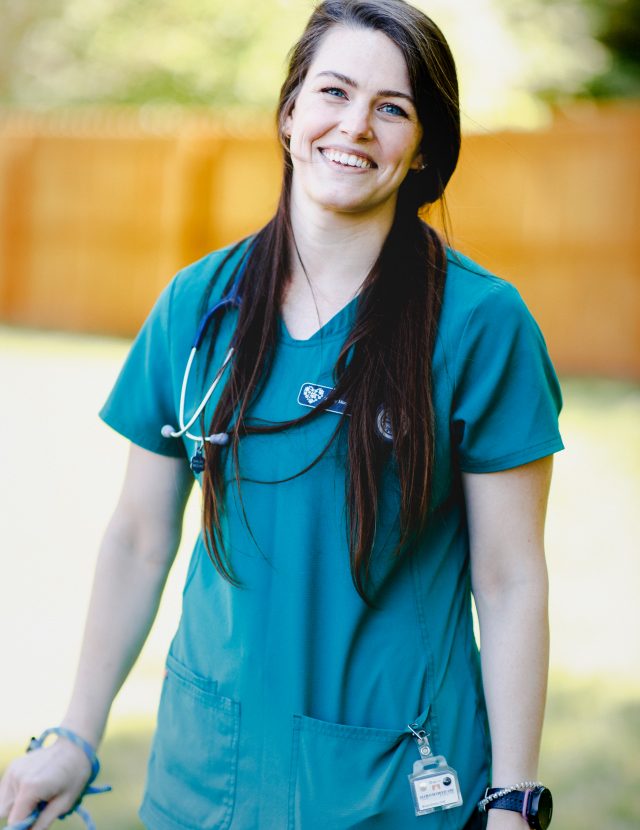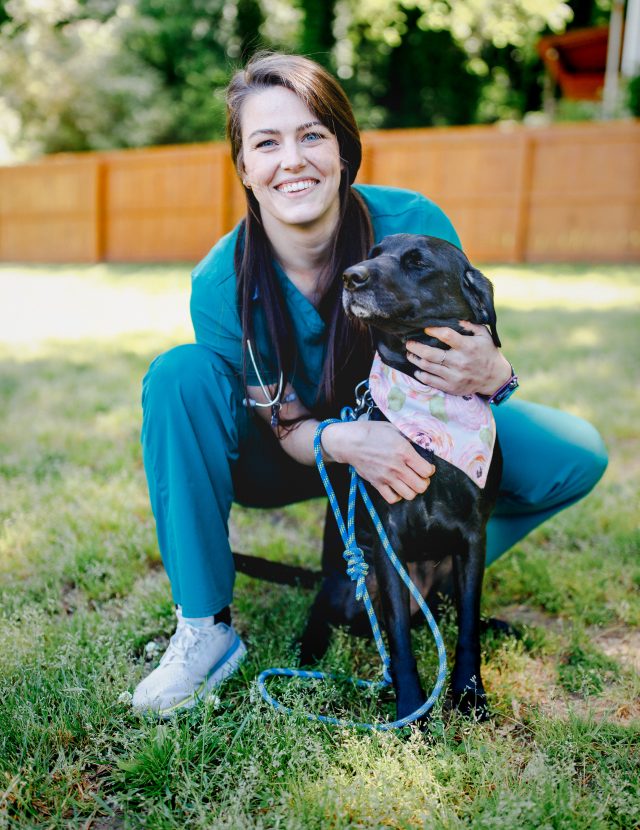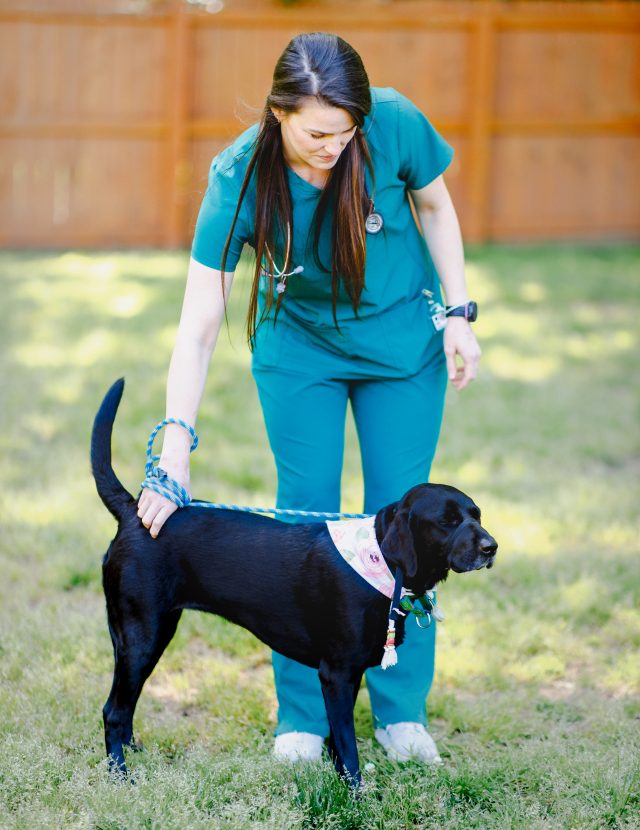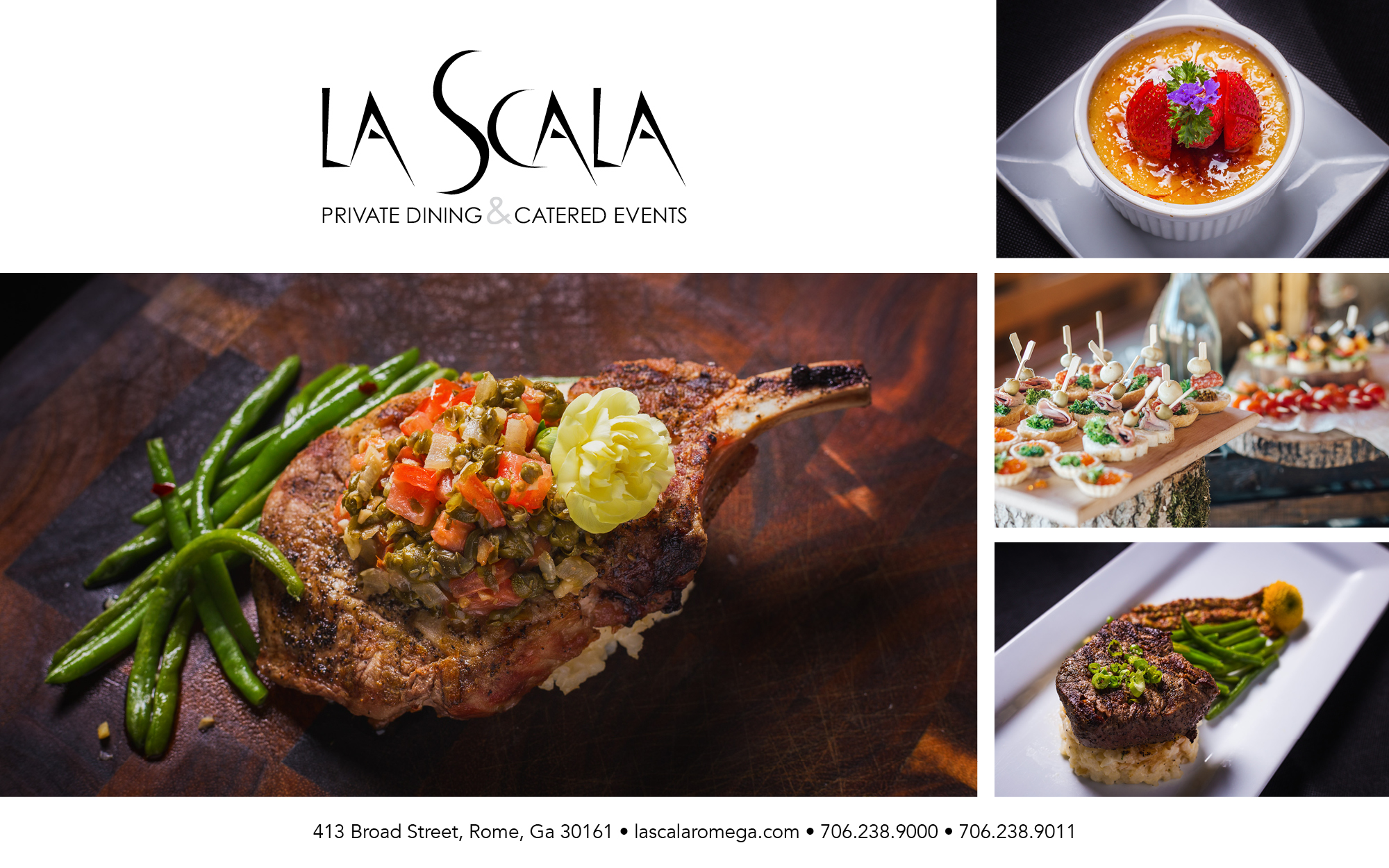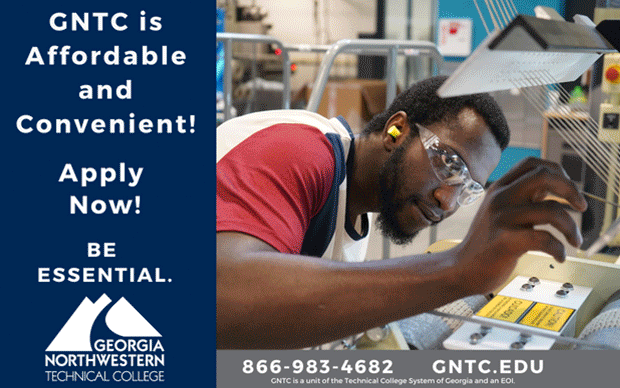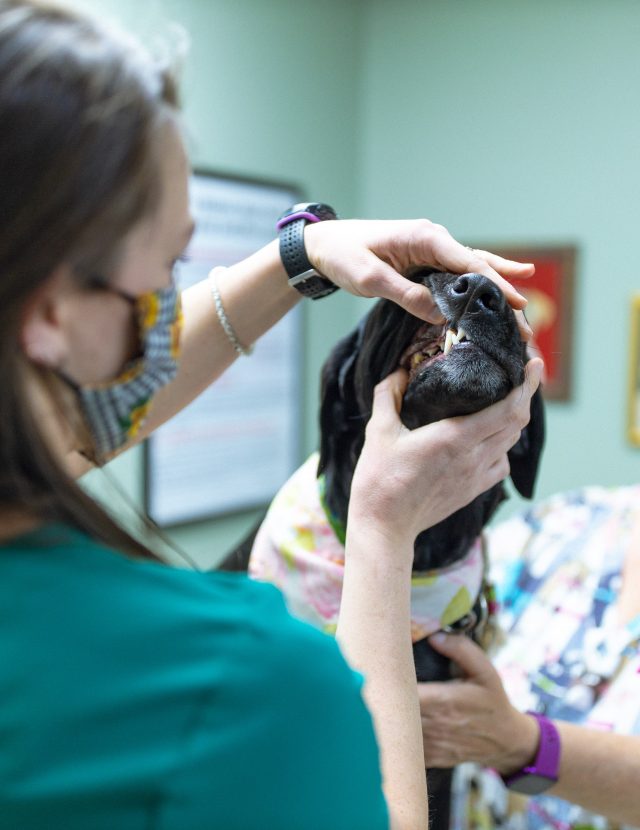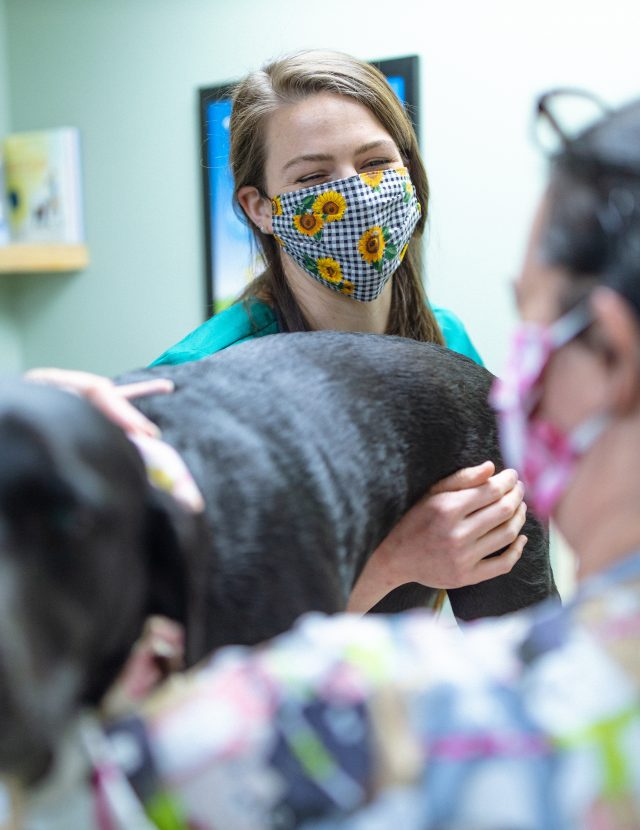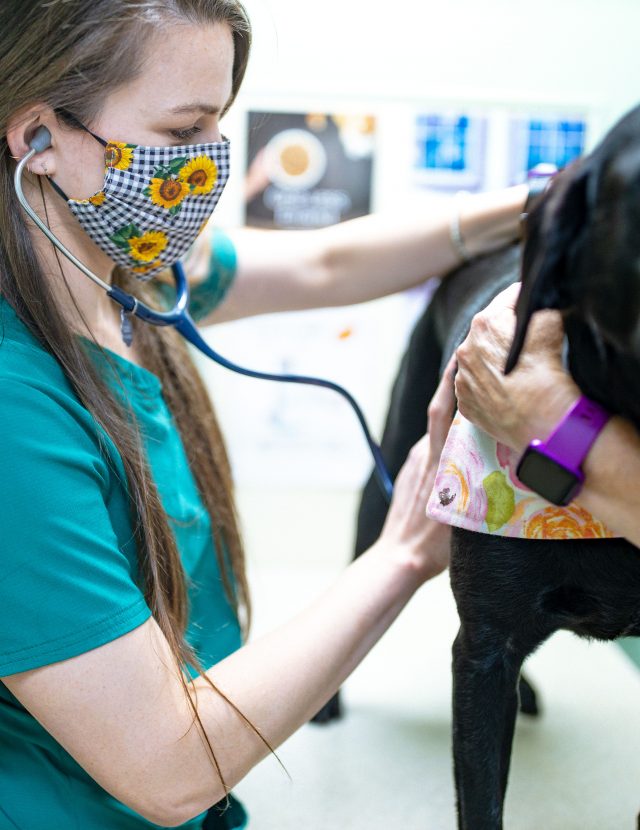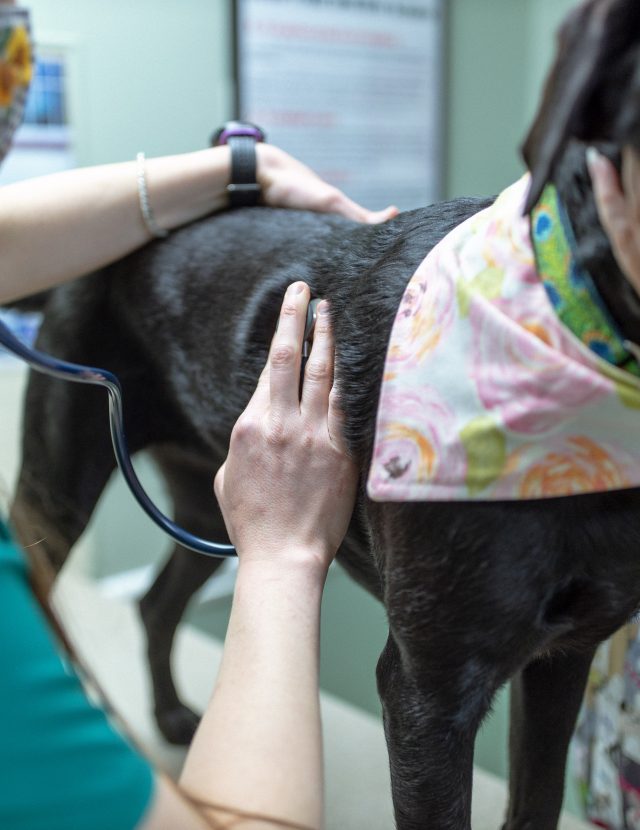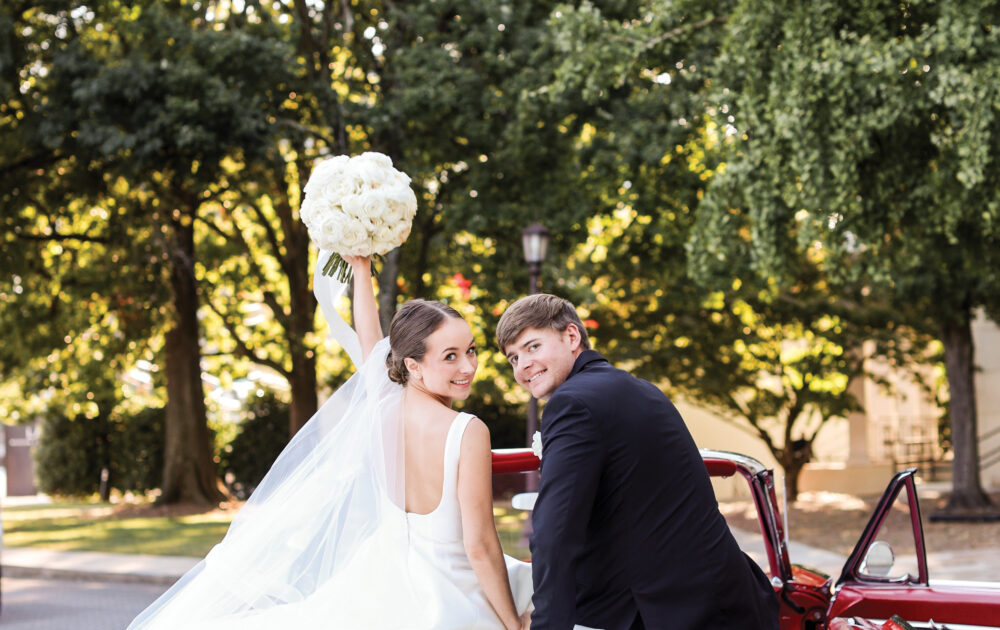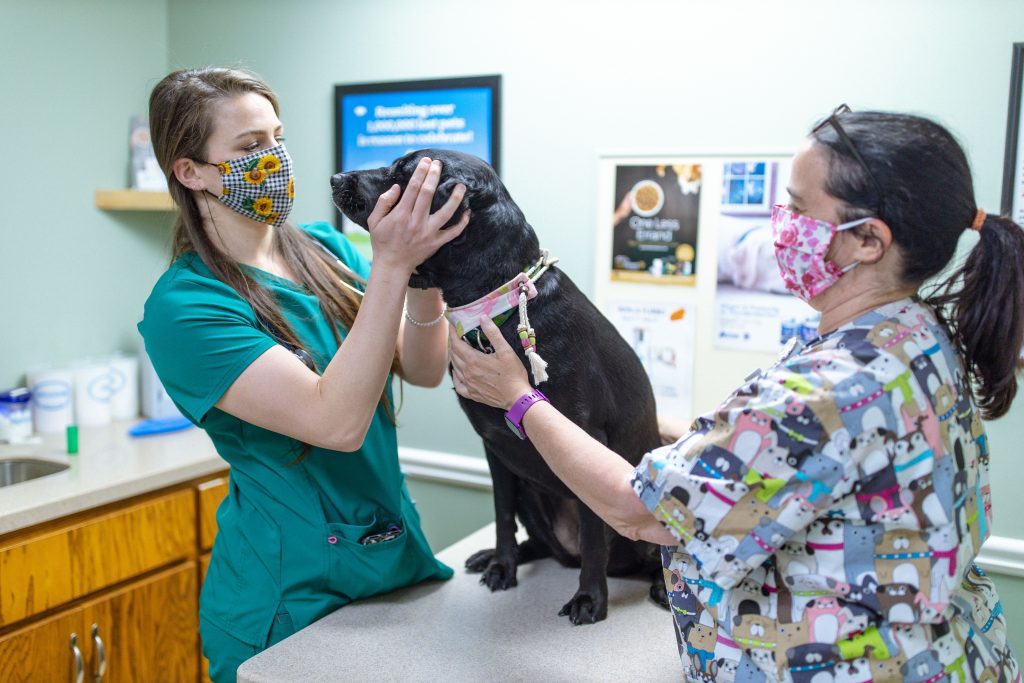
Throughout the coronavirus pandemic, medical workers have put themselves in harm’s way to care for those in need. Hospitals have eliminated elective surgeries until it was deemed safe to resume, and patients who needed to be seen for symptoms or ailments that didn’t align with coronavirus were carefully screened. Every precaution that could be taken to keep them safe on their visit was taken.
The same can be said about our four-legged friends when they have needed medical attention. At Culbreth Carr Watson Animal Clinic, they have continued to take care of their patients through these trying times by following many of the same procedures and guidelines used for human patients.
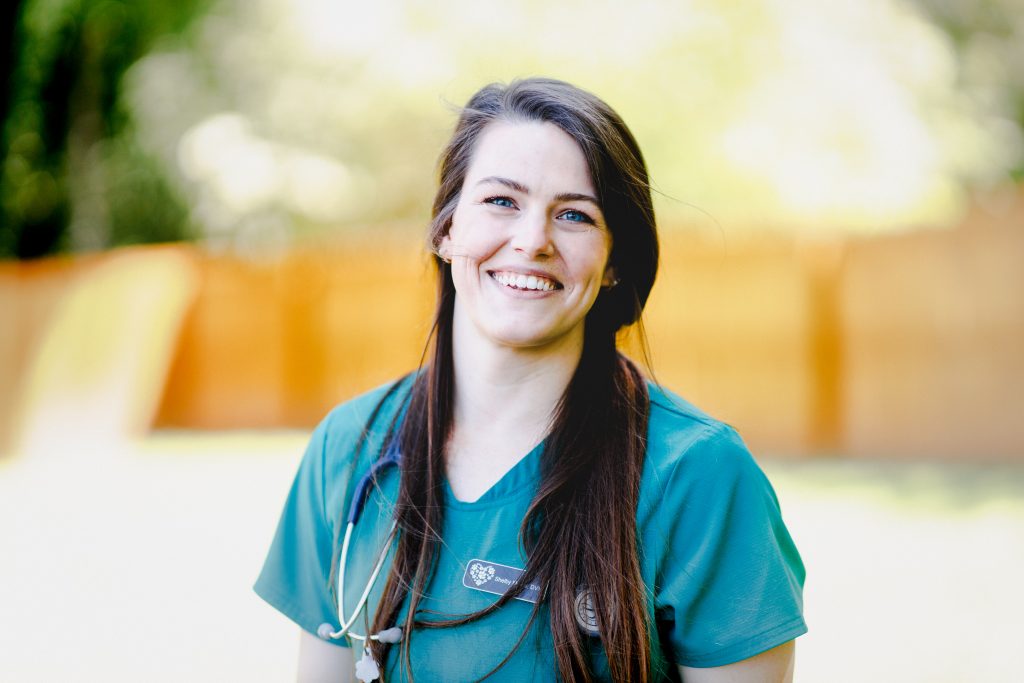
“We knew we needed to make some changes that would allow us to continue serving our clients,” says Dr. Shelby Moore, who has been with the clinic for just shy of 3 years. “We decided very quickly to limit the number of people we allowed in the building. Our clients have been extremely understanding of that process and also understanding that we are working with half the staff we usually have on hand. We have done that by rotating seven-day shifts, which allows us to avoid cross-contamination and gives everyone a chance to work.”
“We knew we needed to make some changes that would allow us to continue serving our clients,” says Dr. Shelby Moore, who has been with the clinic for just shy of 3 years. “We decided very quickly to limit the number of people we allowed in the building. Our clients have been extremely understanding of that process and also understanding that we are working with half the staff we usually have on hand. We have done that by rotating seven-day shifts, which allows us to avoid cross-contamination and gives everyone a chance to work.”
“Those adjustments definitely limit how many animals we can care for just due to the fact that we don’t have the six doctors that are usually here in the building, but we try to schedule visits with that in mind so that if we have a sick animal that needs to be seen, we can work them in.”
One debate that has been at the top of mind since the onset of the pandemic is whether or not dogs and cats can spread the virus. Though the likelihood of that is exceptionally slim, the staff at CCWAC make sure they take the proper precautions anyway.
“Dogs and cats actually carry their own versions of coronavirus, so most of the time, that shouldn’t cause a problem for people,” says Moore. “The American Veterinarian Medical Association or AVMA has said is to be cautious handling your pets or other people’s pets if you think you have been exposed. Wearing gloves and masks if that is the case is recommended. Here we do that of course, but the big change we have had to make is we just can’t be as affectionate with the animals. So puppy kisses are unfortunately off limits until this is over.”
Like most businesses, the solutions to obstacles presented by coronavirus haven’t always been ideal, but the constant theme among clients of CCWAC is understanding and appreciation.
1223 East 2nd Avenue
Rome, Georgia, 30161
706-234-9243

